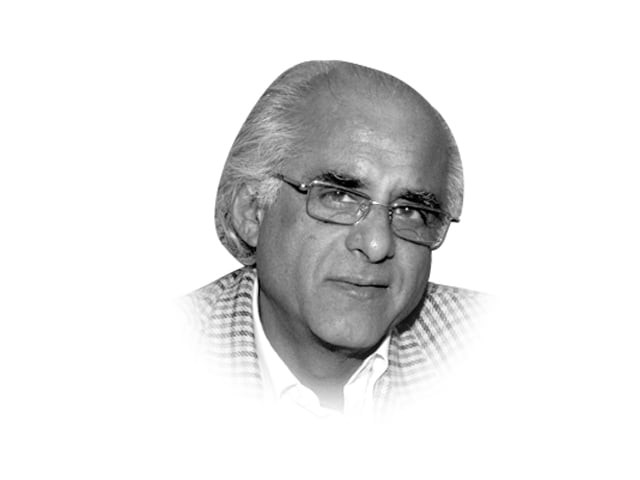Interpreting Alexander
Various historians from different eras and places in the world have painted Alexander according to their own morality.

Interpreting Alexander
In 2001, making my PTV documentary “Sindhia mein Sikander”, I and the rest of the crew were in Taxila, where an elderly local ‘historian’ came around to check us out. Satisfied with our credentials, he lauded us. To me, he very solicitously said that Allah was sure to be pleased with my endeavour to glorify Islam and grant me a place in heaven. Taken aback, I said this was a purely secular documentary with no religious colour. “Sikander-e-Azam was one of the great heroes of Islamic history”, said the so-called historian. “By making a documentary on his life and achievements, you glorify Islam.”
Until this time, I had heard of Alexander being the scriptural Zulqarnain. After Stoneman, I know much more. Except the tribes of the Americas and the Australian aborigines, everyone else claims a connection with Alexander. The Mongols claim descent from Olympias, Alexander’s mother; the Malays and Chinese from the man himself; the Slavs; Pathans; several Central Asiatic tribes et al. Since we are counting, never forget the greatest scam ever: the great Kalash Falsehood now completely shot to pieces by DNA testing. Nevertheless, there are Greeks and Pakistanis who still head for the three Kalash valleys in Chitral. The former seeking kinship; the latter easy virtue in a ‘European community’.
That, incidentally is not all; the Arabs, too, claim some tenuous blood connection with the man. Therefore, since all of us Muslims in the subcontinent are Arabs, we are actually Macedonians! That’s about as convoluted as a family tree can ever get.
Stoneman tells us that Christian lore records Alexander’s presence in Jerusalem, where he performed all sorts of Christian rituals and even visited the tomb of the Prophet Jeremiah. (On his advance through Lebanon to Egypt, in real history he by-passed Jerusalem). But what I found ever more intriguing was the story of his dying injunctions. It is of particular interest because it comes to us from Arabic sources.
As he lay dying in Babylon, Alexander is supposed to have told his generals to kill his physicians to show that man has no control over life and that not even the best doctor can heal a dying person. He also instructed them to prepare his body for the funerary procession so that both his hands should stick out of the coffin, palms up. The idea was to show that they were empty, that no matter how much one acquired in this short life, there is not a jot one can take to the next world.
This and other stories from Arabic sources clearly show that the authors had not read a single authentic history of the conqueror and did not have the vaguest measure of the man’s character and personality. They had heard yarns passed down through scores of generations, embellished as they tumbled along from tongue to tongue and added their own spice to them. The fiction of the hands being left out of the coffin carries the tone of moralising as we Oriental folks like best.
However, the Arabs were not the only moralisers. A 12th century Spanish writer, Walter of Chatillon, writing a millennium and a half after the death of the man, addresses Alexander directly: “To what lengths does your hunger go, Alexander?” He then proceeds to admonish the conqueror for the futility of his worldly ambitions. It is as if Walter, a good and practising Christian, was pained at the perdition that Alexander, a co-religionist, purchased for his soul by pursuing fame and glory in this ephemeral life.
Published in The Express Tribune, November 3rd, 2012.













COMMENTS
Comments are moderated and generally will be posted if they are on-topic and not abusive.
For more information, please see our Comments FAQ